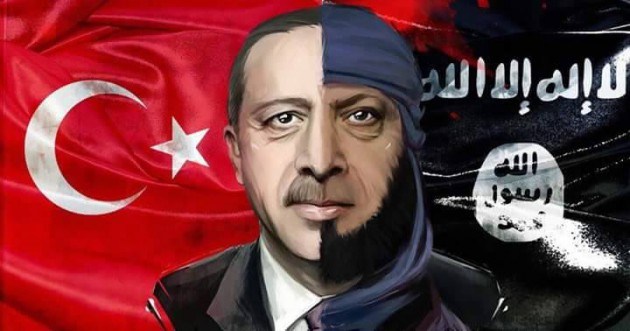
Turkey, America’s supposed NATO ally, is arming the United States’ Islamist enemy in Libya in flagrant violation of a United Nations arms embargo and should be punished with sanctions, said an analysis for the news site Human Events, like reported by ahvalnews.com.
A Turkish-crewed ship last month delivered to Tripoli some 20 Turkish-made armoured vehicles, or MRAPs, evidence of Ankara’s violation of the embargo and support for the Muslim Brotherhood-linked Government of National Accord.
If this side wins Libya’s ongoing civil war, it will impose Sharia law, corrupt the press and open a safe haven for terrorists, journalist and author Richard Miniter wrote on Sunday for Human Events.
Washington, meanwhile, has expressed support for General Khalifa Haftar’s Libyan National Army, which launched a major assault on Tripoli in April.
“Gen. Haftar promises an Egypt-style government, if he wins. That means basic human rights, rule of law, a semi-free press, and regular elections that are usually won by the ruling party. And a new ally in the war on terror,” said Miniter. “This is an alliance that makes sense. Mainly because all of the realistic alternatives are far worse.”
Gen. Haftar has worked with the CIA and spent nearly two decades living in the United States before returning to Libya a few years ago, while his forces are large, disciplined and well equipped, according to Miniter.
Still, he added, Tripoli may be beyond his grasp, as urban warfare is very different from fast-moving desert campaigns, with civilians getting tangled up in the crossfire.
“Tripoli is a humid Stalingrad,” said Miniter. “In this urban battleground, Turkish-supplied armour makes a big impact. Turkish armor will either lengthen the war and widen the death toll or, worse, prevent the war’s end by enforcing a murderous stalemate.”
Without aircraft or armour of its own, Haftar’s forces cannot do much in response. A stalemate could lead to a failed state on the Mediterranean, which would likely become a migrant transit point, potentially destabilising Europe, according to Miniter.
Thus, Libya is a security issue for Europe, if not also for the United States. Yet in addition to its controversial plan to buy Russia’s S-400 missile system, Turkey’s ruling Justice and Development Party (AKP) government poses a major hurdle to achieving stability there, according to Miniter.
“Long governed by the Islamist AKP, Turkey has broken its longtime alliance with Israel, helped Iran evade U.S. sanctions by trading with it, and now, in Syria and Libya, aids America’s battlefield enemies,” said Miniter, who recommended sanctions rather than expelling Turkey from NATO, as it represents the alliance’s second largest army.
“President Trump’s willingness to use tariffs could play a helpful role. He imposed onerous tariffs on Turkey before, to spring a U.S.-born pastor from Turkish prison. Using that tool again may dissuade the Turks from arming America’s enemies – before such behavior hardens into habit,” he said.


